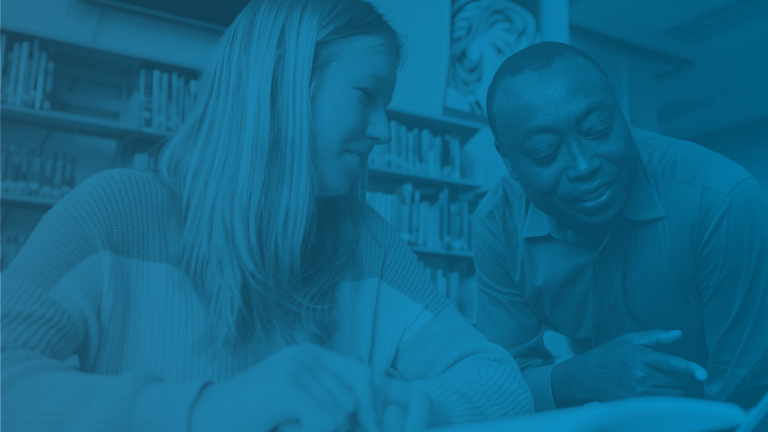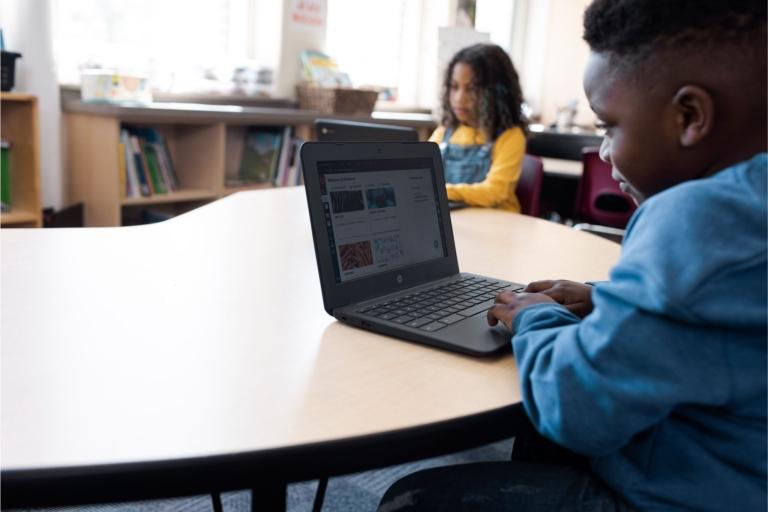
In the earlier days of the COVID pandemic when we made the transition from face-to-face into remote learning, school districts across the country started to take inventory of what they had available to support their teachers and their students. There are things that became very clear in many places.
Learning management systems (LMSs) may have been considered a luxury item that districts that had a visionary leader might have in place. The pandemic changed that, and it's now become a must have. In order to be able to fully support teachers and students, even as they return to the classroom, you need a fully functional LMS.
We're also seeing, especially as we think about how to address learning loss, that having an assessment management system coupled with high-quality assessments is key. We're not talking about your summative, end of year tests, but rather formative assessments; those frequent check-ins that you need with your students to give teachers actionable data so they can understand what students know and how to shape instructional strategies around it.
Looking back on the remote learning period of the pandemic, what did schools learn and how can that position educators for a more successful future as they head back to the classroom?
We recently conducted a webinar – Building an Effective Learning Ecosystem: Lessons Learned from the Pandemic – in which a panel of educators described how they used Canvas LMS, MasteryConnect AMS, and high-quality assessments during remote learning. The panelists including Sherri Abel, who is from the Charleston County schools in South Carolina, Dr. Jason Gardner, who is from the Rowan-Salisbury Schools in North Carolina, Dr. Greg Paczak, from Madison County schools in Mississippi, and Jenny Watson from Boone County Schools in Kentucky. The lessons they shared can help guide educators as we continue to move forward.
“We really needed the consistency of one LMS, a one stop shop, where parents know where to look for each of their kids when they have multiple kids. So, we quickly pivoted [to Canvas] to make sure that it was uniform across the district. I think that if you were to poll our parents, that was the number one thing that made this feasible for them. We needed to make it very parent-friendly, and Canvas made that possible for us.”
“Now, daily and weekly, teachers look at [assessment] data to get a starting place, and that's the key. It is just a starting place. It's not the end all to be all. It's great quantitative data, but then we go to find the qualitative -- the why. What's going on? Why are these trends the way they are? So when you take assessments with MasteryConnect and then you combine them with Canvas, it is a true learning ecosystem.”
“I'm a big believer that data is the starting point, not the end point. And if you have that mindset of continuous improvement, you really internalize that, then that should be the mantra that we utilize. Coming on board with MasteryConnect and the item bank was just like -- teachers eyes wide open. Like, what? I can use these tools to reteach and then reassess my students.”
“We want learning and mastery of learning to be the constant, the driver, the thing that we guarantee that every kid gets. I don't want to guarantee that every kid gets 200 days of seat time in 4th grade. I want to guarantee that they master those standards. A trusted assessment is a key part to that. So, we are very fortunate to have that relationship with MasteryConnect to drive that forward.”
“We have exit tickets for every lesson because we want to gauge immediately -- where is the student right now with today's lesson? Is the student showing mastery of what we've taught today? Have they learned? And if not, what are we going to do tomorrow to ensure that that mastery has occurred? We're trying to stop gap that immediately and not wait until some high stakes test to tell us that the kid doesn't have it.”
“It's great to be given rigorous tests that reflect that of the state assessments three times a year, but what if you could do it on a weekly basis? That has been the next big shift for us, is creating high quality formative assessments through MasteryConnect on a weekly basis that match the DOK and the item types of those on the {CASE} benchmarks and the state assessments.”
These, and other insights from four fantastic educators show how they and their districts managed the pandemic and remote learning with a thoughtful approach. What’s perhaps most encouraging, as these tools proved so valuable during the pandemic, has positioned them for continued success post-COVID.
For more insights from this panel of educators and additional lessons they learned from remote learning that can be applied back in the classroom, check out the webinar here.
Related Content
 Teaching-With-Tech-10-Benefits.jpg
Teaching-With-Tech-10-Benefits.jpgBlogs
 untitled_design.jpg
untitled_design.jpgBlogs

Blogs
